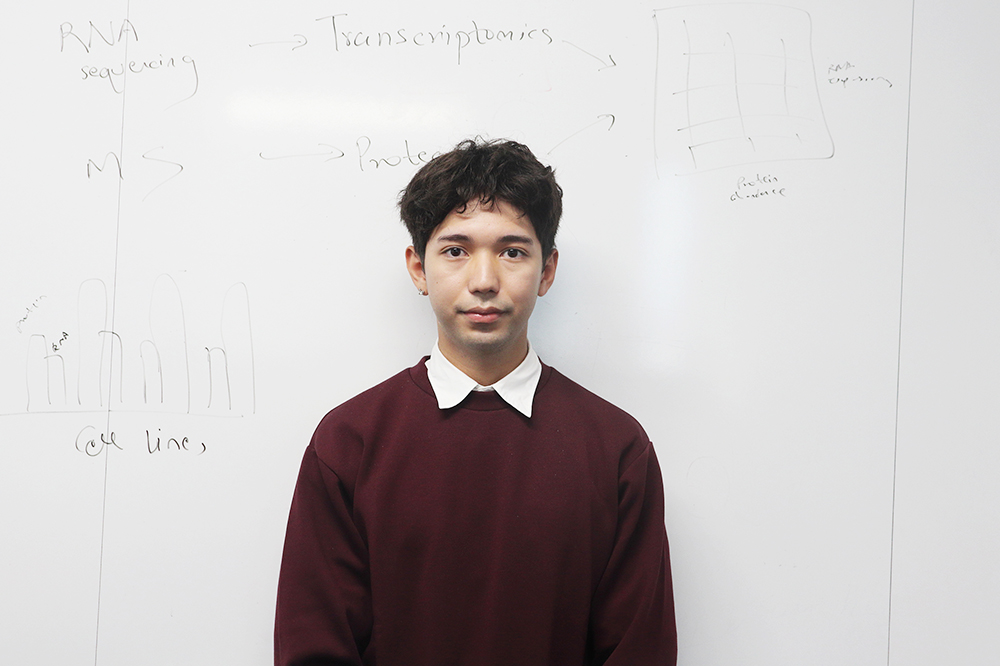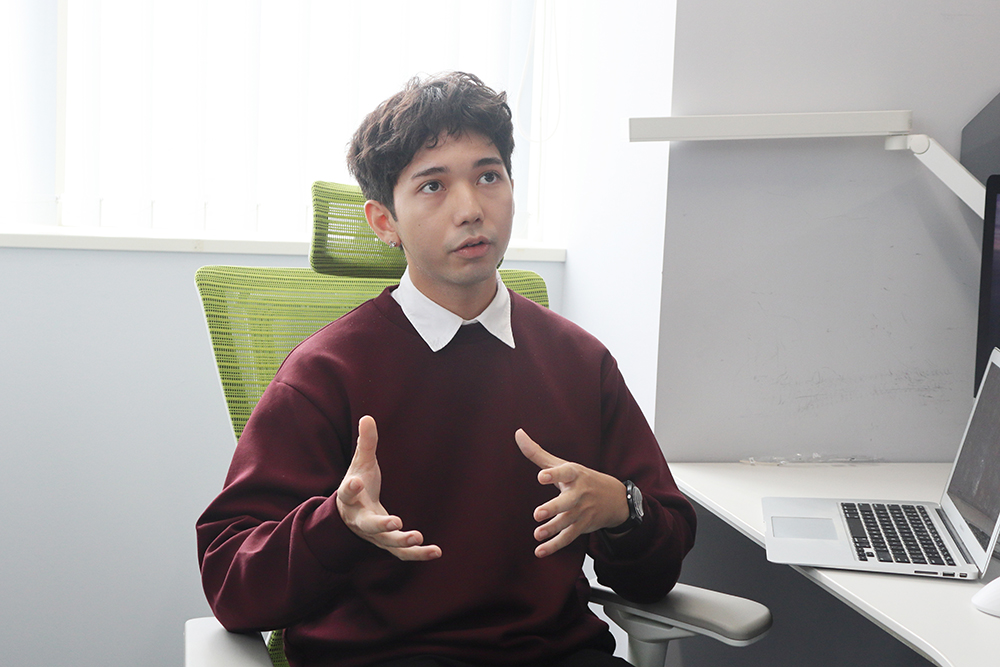
CiRA Reporter
CiRA Reporter

Internship
November 8, 2023
CiRA Research Internship Program Student Interview vol. 4
-Getting Feet Wet with Dry Lab (Bioinformatics) Research-

Thadoe Thukha (University of Göttingen)
at the lab in CiRA.
Having lived in Europe for many years for his bachelor’s degree at the University of Dundee (Scotland) and now his master’s degree at the University of Göttingen (Germany), Thadoe Thukha, one of the students in this year’s CiRA Research Internship Program, said he really enjoys Japanese food.
"My hometown food in Myanmar is mostly rice and other Asian foods," Thukha explained. "Having Japanese food gave me a sense of nostalgia. Food in Germany is very different."
Thukha’s recent research focus in Germany is on generating engineered heart myocardium from induced pluripotent stem cell (iPSC)-derived cardiomyocytes for drug screening and disease modeling. He is especially interested in the heterogeneity between different iPSC lines because they are generated from different patient sources and thus have distinct genetic information.
"But this can cause a problem when you use them to model diseases and develop drug therapies because this heterogeneity can lead to inconsistent disease models, different drug responses, and also ethical challenges," he said. "CiRA is the founding home of iPSCs, so I wanted to learn and experience stem cell research here." Fortunately, because the University of Göttingen is one of the many Overseas Partner Institutions of Kyoto University, Thukha was introduced to this internship opportunity at CiRA by his graduate program coordinator.
Here at CiRA, he spent four weeks working with Dr. Risa K. Kawaguchi (Junior Associate Professor, Department of Life Science Frontiers), getting his first real experience in bioinformatics. "I worked as a proteomics technician assistant for six months at the University of Dundee after graduation, so I prepared protein samples for mass spectrometric analysis and organized the data," he explained. "But I never got a chance to analyze big data, so I was lacking that part of the science."
By working with Kawaguchi, he got out of his comfort zone in wet lab research and learned about various omics analysis techniques. A research project he worked on during the research internship was to integrate transcriptomics and proteomics data and examine for correlations between the two types of omics data. This project aimed to investigate how large the gene expression and protein abundance are correlated across many cell lines from different individuals. Although he had no experience with bioinformatics, Kawaguchi and other lab members were very kind and friendly and were always happy to teach him new things.

Thukha also used the research internship as an opportunity to meet other students and researchers from wet labs to learn about the lab culture in CiRA. "Through experiencing different lab cultures, this internship program motivated me to do my Ph.D. in a different country," he said. "It is fascinating how the lab culture here is. It is very independent here, compared to Europe, or at least as far as I have experienced in Germany. I also would like to consider doing a Ph.D. here in Japan."
During the weekends in the Kansai region, aside from visiting many shrines in Kyoto, such as the Fushimi Inari Taisha Shrine, Thukha also visited Nara and Osaka. He also has plans to visit Tokyo for a few days after the internship program ends. Back to the topic of Japanese food, he said he especially liked having sushi. However, he admitted his preference is somewhat unconventional because his favourites are yakiniku beef or pork sushi!
-
Interviewed and written by Kelvin Hui Ph.D.
CiRA Research Promoting Office






















